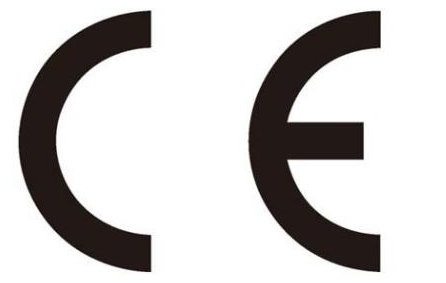What is CE certification?
The CE certification constitutes the main requirement of the core of the European Directive. It is limited to the basic safety requirements of products that do not endanger the safety of humans, animals and goods, and not the general quality requirements. The coordination directives go to the main requirements. The general directives are standard bricks. task. Therefore, the exact meaning is: CE mark is a safety mark rather than a quality mark.
CE certification mark

The "CE" logo is a safety certification mark and is considered as a passport for manufacturers to open and enter the European market. CE stands for CONFORMITE EUROPEENNE. In the EU market, the “CE” mark is a mandatory certification mark. Whether it is a product produced by a company within the EU or a product produced in other countries, it must be affixed with “CE” in order to be freely circulated in the EU market.
Application for a CE necessity
The CE certification provides uniform technical specifications for the trade of products of various countries in the European market and simplifies trade procedures. To enter the European Union and the European Free Trade Zone, any country’s products must undergo CE certification and have CE marking on the products. Therefore, CE certification is the pass for products entering the European Union and the European Free Trade Zone countries. CE certification means that the product has reached the safety requirements stipulated by the EU Directive; it is a corporate commitment to consumers that increases consumer trust in the product; products affixed with the CE mark will reduce the risk of sales in the European market. These risks include:
1) The risk of being detained and investigated by Customs;
2) Risks investigated by market surveillance agencies;
3) The risk of allegations by peers for competitive purposes
Apply for CE Benefits
1) The EU's laws, regulations, and harmonized standards are not only numerous in number but also very complex in content, so obtaining EU-designated agencies' assistance is a wise move that saves time, effort, and risk;
2) Acquire the CE certification certificate from the EU-designated agency to maximize the trust of consumers and market surveillance agencies.
3) Effectively prevent the occurrence of irresponsible accusations;
/> 4) In the face of litigation, the EU's designated organization's CE certification will become legally valid technical evidence;
5) Once punished by the EU countries, the certification body will be jointly Take risks and therefore reduce the risk of the company.
Applicable to CE certification
European Union and EEA countries in the European Economic Area require the CE mark. Until January 2013, the EU EU has 27 member states. They are:
Austria Austria, Belgium Belgium, Denmark Denmark, Finland Finland, France France, Germany Germany, Greece Greece, Ireland Ireland, Italy Italy, Luxemburg Luxembourg, Netherlands Netherlands, Portugal Portugal, Spain Spain, Sweden Sweden, United Kingdom (Great Britain) United Kingdom, Estonia Estonia, Latvia Latvia, Lithuania Lithuania, Poland Poland, Czech Republic Czech Republic, Slovakia Slovakia, Hungary Hungary, Slovenia Slovenia, Malta Malta, Cyprus Cyprus, Romania Romania, Bulgaria Bulgaria.
European Free Trade Association EFTA's 3 member states: Iceland Iceland, Liechtenstein Liechtenstein, Norway Norway.
Half EU countries: Turkey Turkey.
Apply for CE certification
1) Apply by the company;
2) Both parties sign the certification contract;
3) The company provides testing samples and technical documents;
4) Perform sample testing and technical documentation review;
5) Issue Compliance Certificate:
6) The company issued a declaration of conformity;
7) The enterprise attaches the CE mark on the product.
Technical documents to be prepared for CE certification
1) name, address, product name, model number, etc. of the manufacturer (EU authorized representative (EU authorized agent) AR);
2) product instructions;
3) Safety design documents (including key structural drawings, which are design drawings that can reflect creepage distances, clearances, number of insulation layers, and thicknesses);
4) Product technical conditions (or corporate standards), the establishment of technical information;
5) product electrical schematics, block diagrams and circuit diagrams;
6) List of key components or raw materials (please use products with European certification mark);
7) Test Report;
8) relevant certificates issued by the EU authorized certification body NB (for other modes than model A);
9) product registration certificate in the European Union (for certain products such as: Class I medical devices, general IVD in vitro diagnostic medical devices);
10) CE Declaration of Conformity (DOC);
CE certified product type
1) Power CE certification: communications power supply, switching power supply, charger, display power supply, LED power supply, LCD power supply, uninterruptible power supply UPS, etc.;
2) CE certification of lighting: chandeliers, track lights, garden lights, portable lights, downlights, LED street lights, light strings, table lamps, LED spotlights, LED bulb lights, grille lights, aquarium lights, Street lamps, LED lamps, LED lamps, energy-saving lamps, T8 lamps, etc.;
3) CE certification for household appliances: fans, kettles, stereos, televisions, mice, vacuum cleaners, etc.;
4) Electronic CE certification: earplugs, routers, cell phone batteries, laser pointers, vibrators, etc.;
5) CE certification of communication products: telephones, wired telephones, main and auxiliary machines, fax machines, telephone answering machines, data machines, data interface cards and other communication products.
6) Wireless products CE certification: Bluetooth BT products, tablet computers, wireless keyboards, wireless mice, wireless readers, wireless transceivers, wireless walkie-talkies, wireless microphones, remote controls, wireless network devices, wireless Image transmission systems and other low-power wireless products;
7) CE certification of wireless communication products: 2G mobile phones, 3G mobile phones, 3.5G mobile phones, DECT mobile phones (1.8G, 1.9G band), wireless intercom, etc.;
8) Mechanical CE certifications: Gasoline engines, welding machines, CNC drilling machines, tool grinders, mowers, washing equipment, bulldozers, elevators, drilling machines, dishwashers, water treatment equipment, gasoline welding machines , printing machinery, woodworking machinery, rotary drilling rigs, lawn mowers, snow plows, excavators, printers, printers, cutters, rollers, smoothers, brush cutters, hair straighteners, food machines, lawn mowers, etc. ;
9) medical device CE certification;